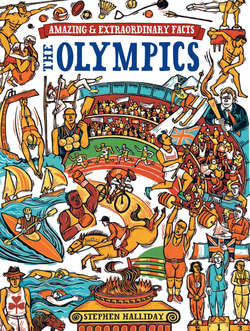Читать книгу The Olympics - Stephen Halliday - Страница 7
На сайте Литреса книга снята с продажи.
SHIN-KICKING
ОглавлениеShin-kicking was, if anything, worse than it sounds. Working men, in hobnail boots or clogs, would kick each other’s shins until one of them fell to the ground. The skilful contestant up-ended his opponent in mid-kick, while he was off balance, but bouts could last 45 minutes amidst much blood. The contests are still held in Chipping Campden but participants now wear Wellington boots packed with straw to avoid serious injury.
The Cotswold Games were briefly suppressed during the Puritan ascendancy following the Civil War of the 1640s but were resumed with the restoration of Charles II and became known as the Cotswold Olympicks. Dover died in 1652 but the games continued intermittently until 1852 when they attracted controversy because of the participation of a number of ‘navvies’ (labourers) who were building the nearby Chipping Campden Tunnel for Isambard Kingdom Brunel on a branch of the Great Western Railway. The behaviour of the navvies offended some local residents (they were probably spectacularly good at shin-kicking) but the games were revived in 1951 to mark the Festival of Britain and again in 1963, by which time Dover’s Hill had passed into the possession of the National Trust.
Isambard Kingdom Brunel
By 1636 the ‘Cotswold Olympicks’ were sufficiently well known to attract a volume of verse published in praise of them. The contributors included Shakespeare’s friend Ben Jonson and Shakespeare himself refers to the Olympics in his plays. There has been much speculation about whether Shakespeare knew Robert Dover, a contemporary, and whether the playwright visited the Cotswold Games from his home in nearby Stratford before his death in 1616. In Henry VI Part III Shakespeare refers to ‘Such rewards as victors wear at the Olympian games’. The Cotswold Games did not pass unnoticed in other quarters.
William Shakespeare
